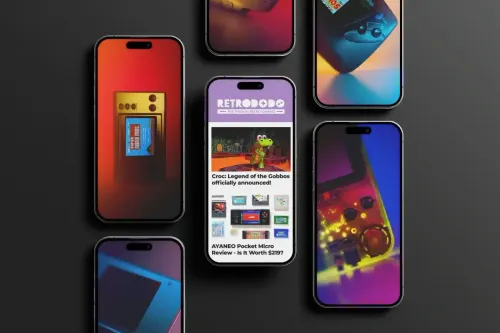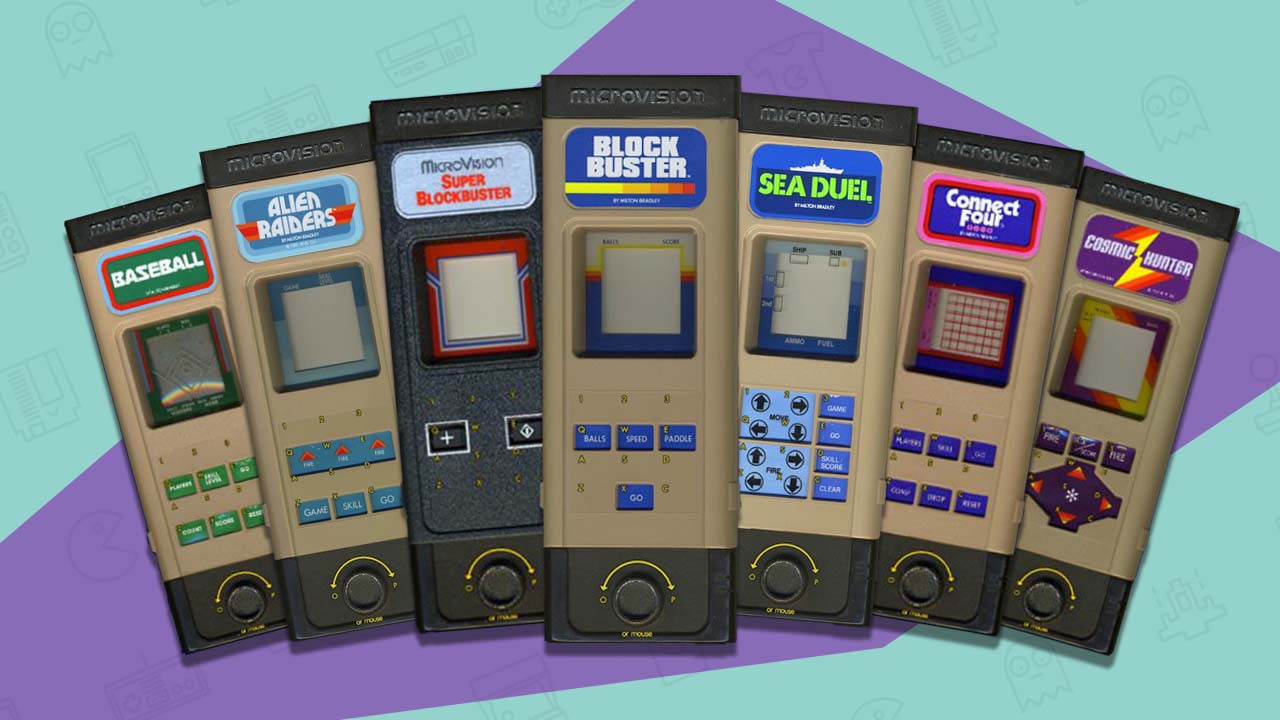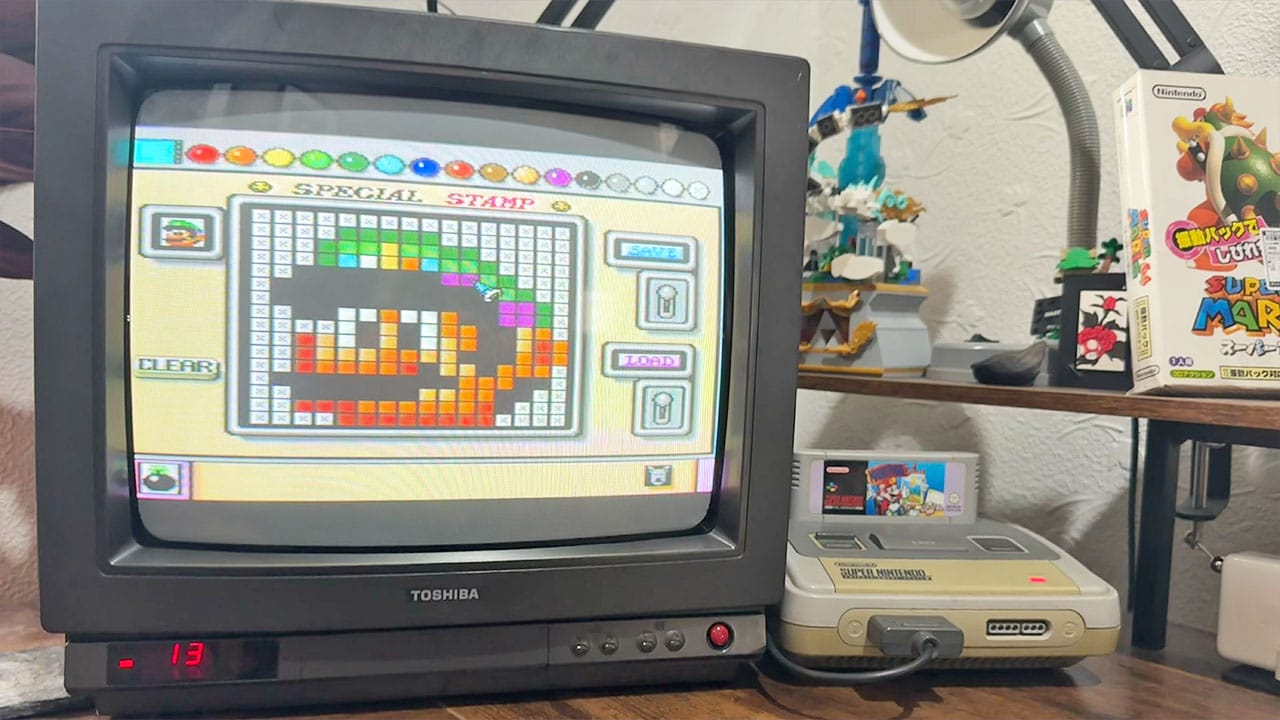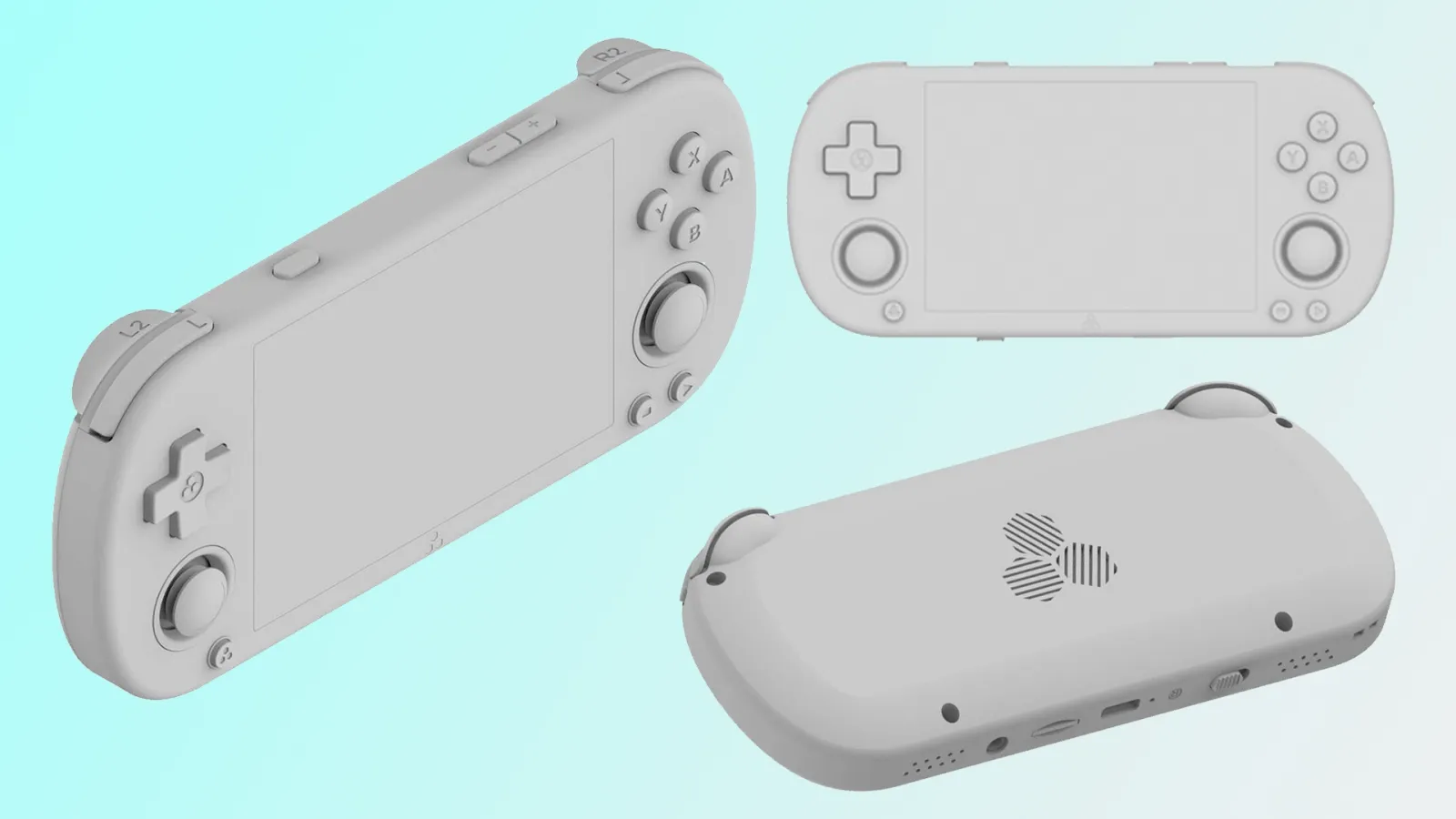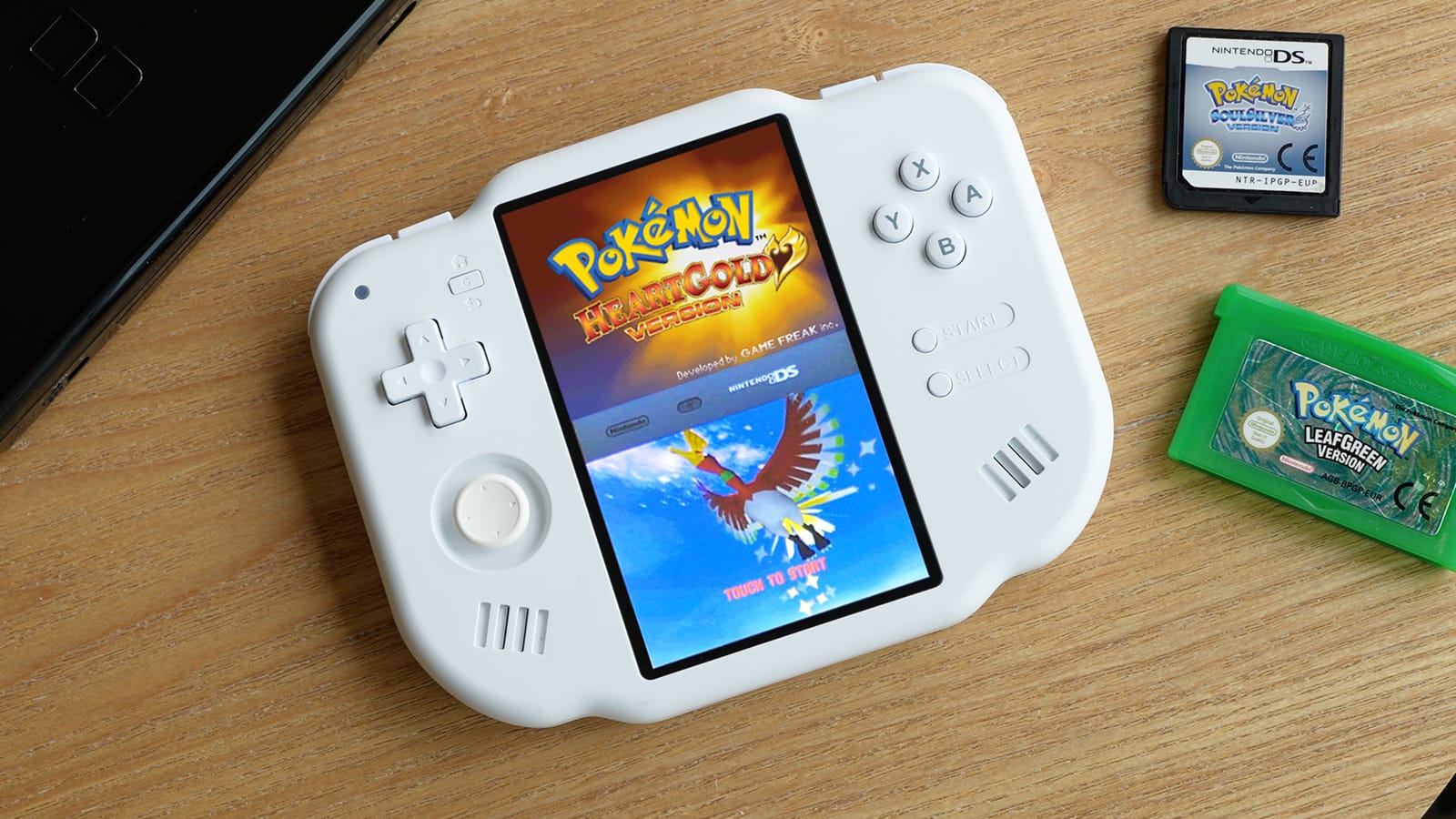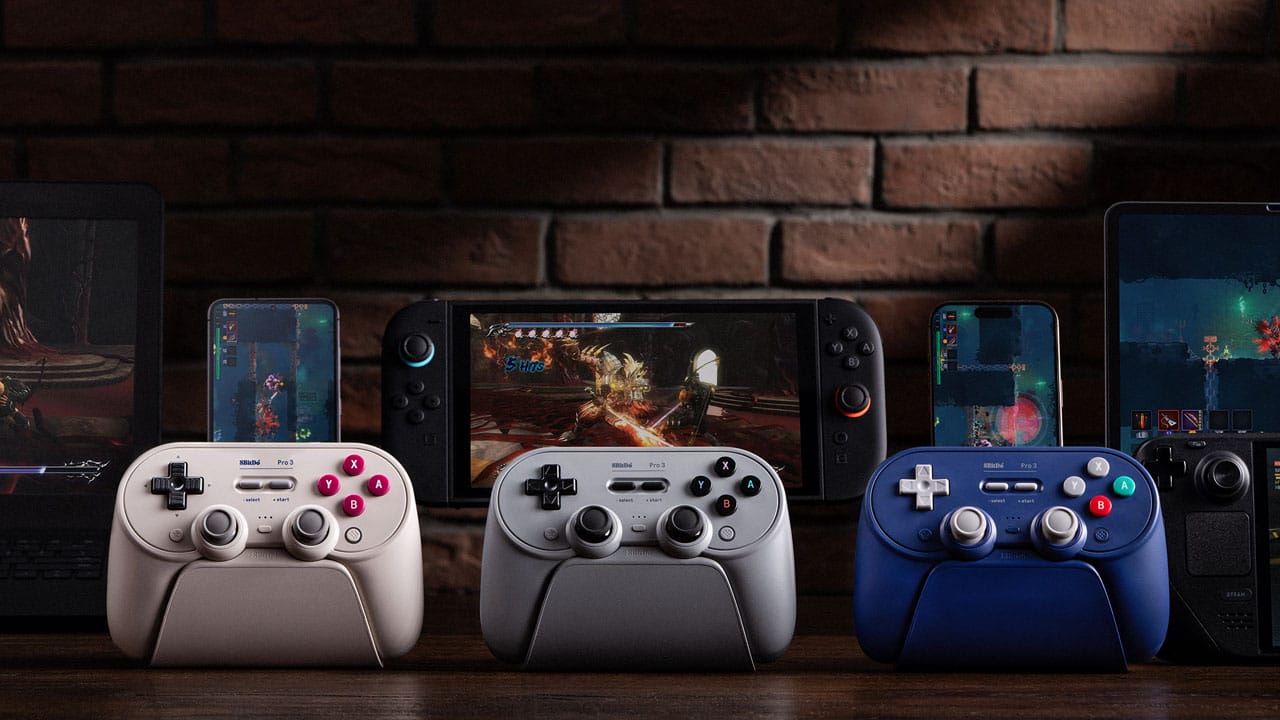The Microvision has the distinction of being the very first handheld games console with interchangeable game cartridges.
Though quite crude and dated even by the standards of the Game Boy (which arrived in 1989, ten years after the Microvision was released), it’s nonetheless an impressive and inventive piece of technology for its time.
For numerous reasons – including technical problems that meant LCD screens were easily damaged, as was the console itself (which we’ll go into in more depth on, with our history of the console below), there were only ever 12 games released for the Microvision – so let’s take a look at them all as we check out the Best Microvision Games, some would even say that the best on this list deserves to be in our best retro games list!
12. Pinball
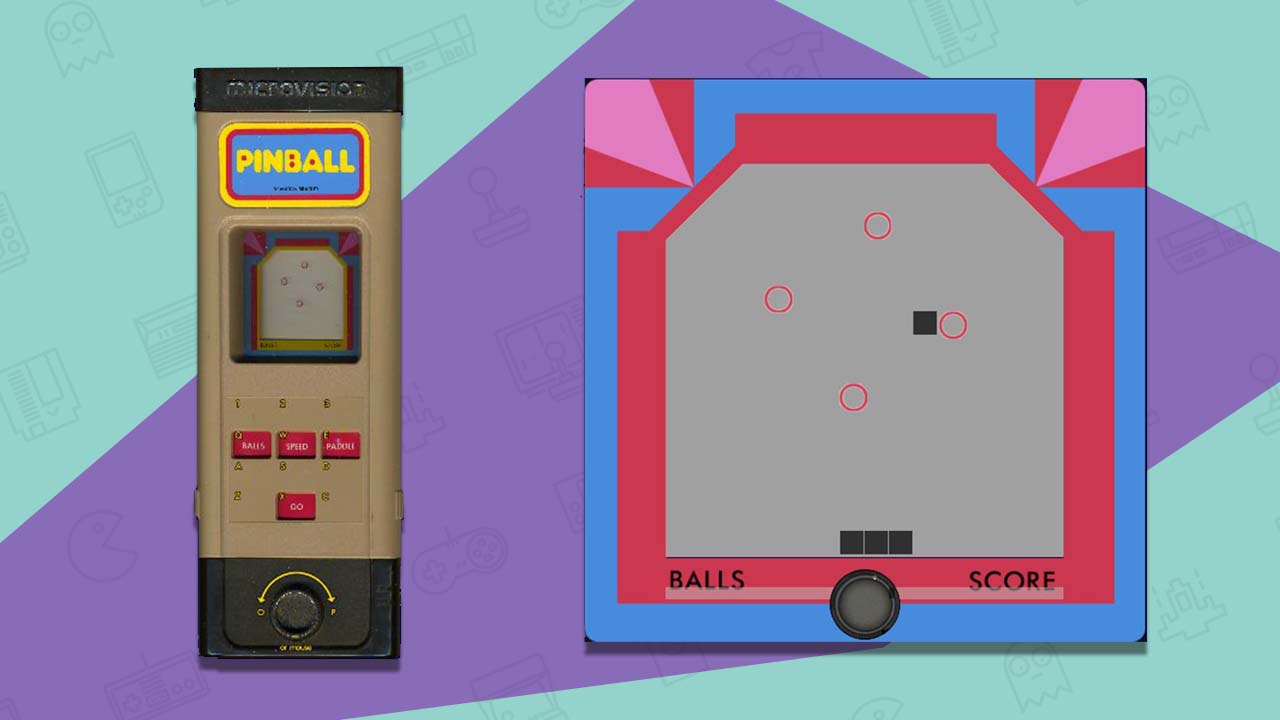
Though in theory the Microvision should have been a great console to play pinball on, the tiny screen size and the fact that, despite the title, this isn’t even really a pinball game makes it one of the biggest disappointments in the console’s tiny library – a sadly worthy contender for the very bottom of the Best Microvision Games list.
11. Star Trek: Phaser Strike
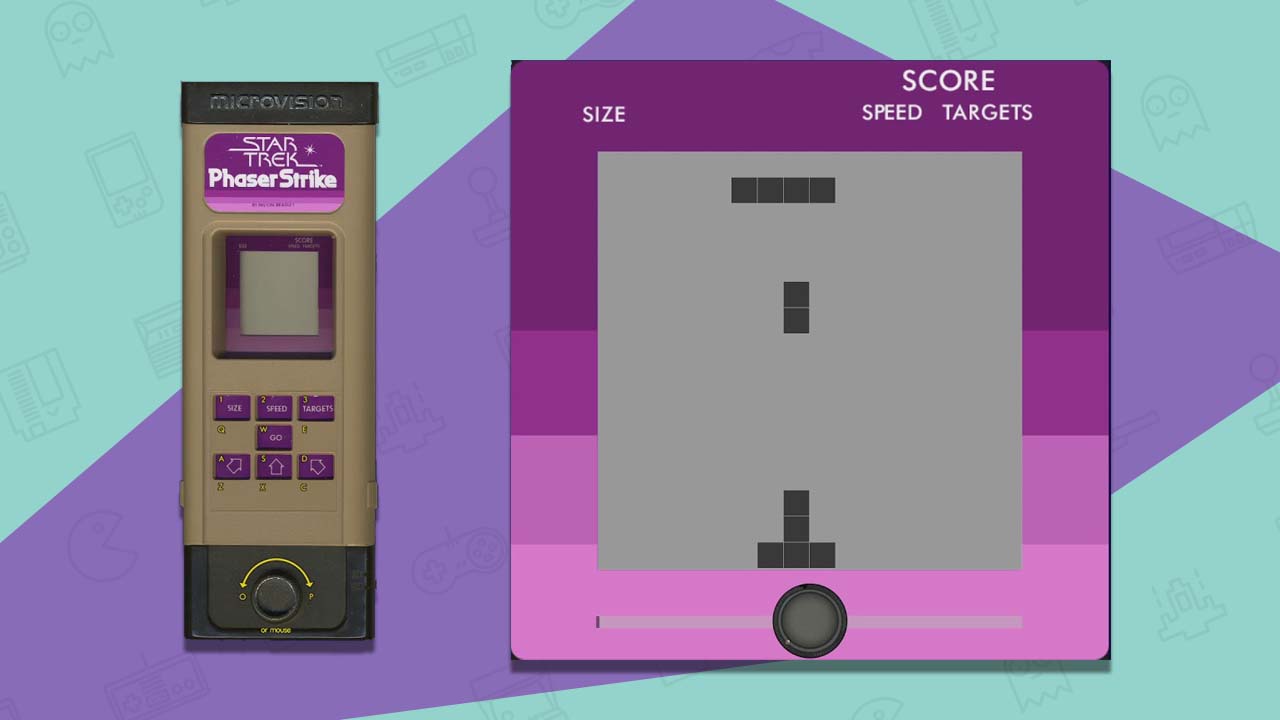
Now this is exciting – a licensed game on the humble Microvision? Sign me up! Or rather, beam me up – right? Actually, don’t bother.
This one’s terrible; it’s just a few squares shooting at more squares moving across the screen. It does make you wonder why they bothered paying for the Star Trek branding; it was removed for the non-US releases and just called ‘Phaser Strike’ – and it loses nothing in the process.
Of course, taking away the licensing doesn’t make it any better to play either. Probably the biggest disappointment in the entire Microvision library – narrowly missing out on being at the lowest point of the Best Microvision Games list.
10. Vegas Slots
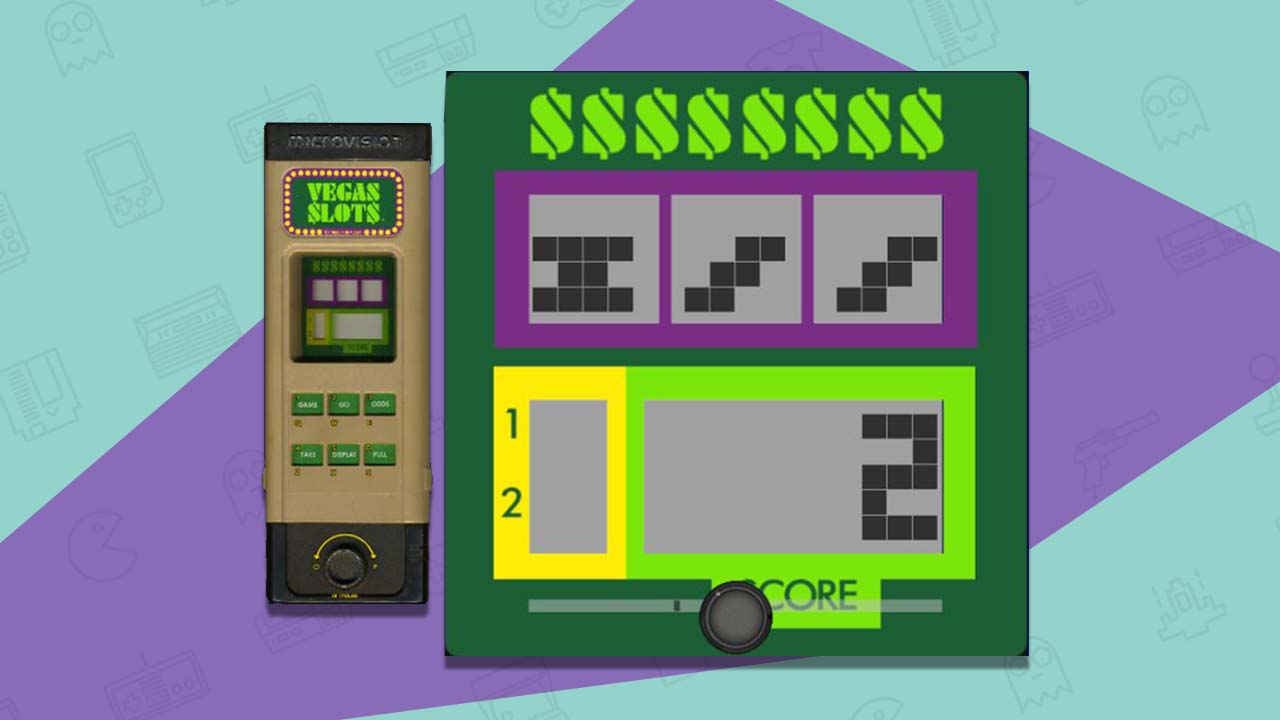
Though there’s nothing really wrong with Vegas Slots per se – and it does have a slightly more interesting two player mode, with a little push your luck mechanic added into the proceedings – it is far too random to be much fun.
It does exactly what it sets out to though, which is being a random slot machine gambling simulator. So – mission accomplished I guess?
9. Bowling
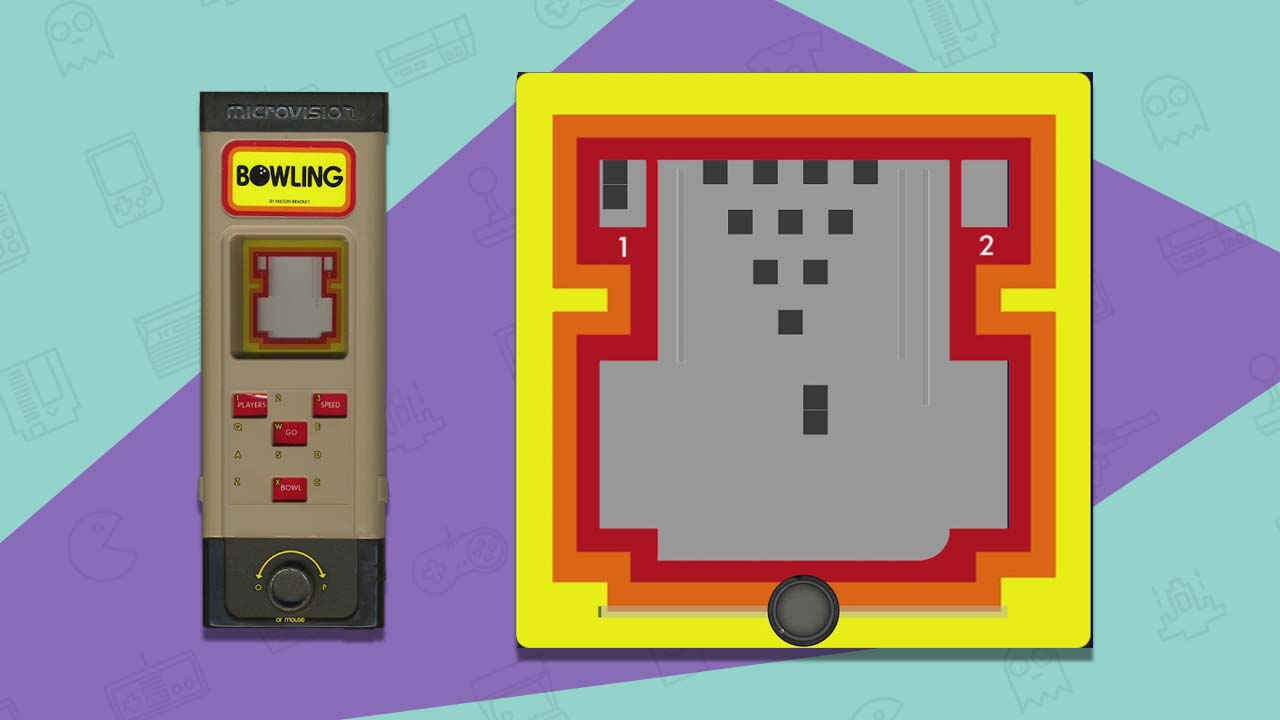
Another game that doesn’t necessarily do anything wrong, Bowling is just far too basic to be particularly enjoyable. Timing is key but once you have that sorted, there’s really not much else to sink your teeth into.
A two player mode saves Bowling from being further down the Best Microvision Games list, but it’s not much better with another human.
8. Mindbuster
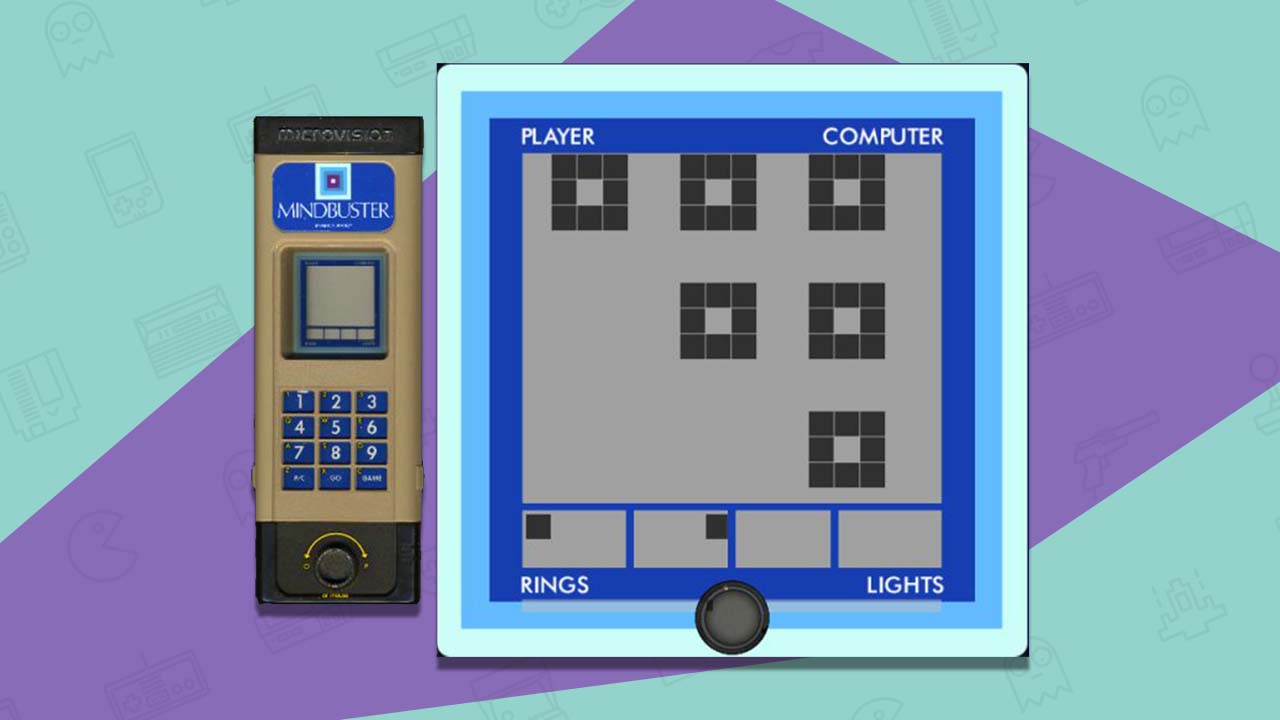
Though many Microvision players rate this puzzle game quite highly, I just found it a bit dull to be honest. Pressing ‘lights’ in specific patterns to eliminate them all or – in its second game mode – trying to surround smaller squares with bigger squares is all you’ll get here, gameplay-wise.
Impressively though, players can configure their own puzzles – not a bad feature for a tiny LCD game, eh?
7. Baseball
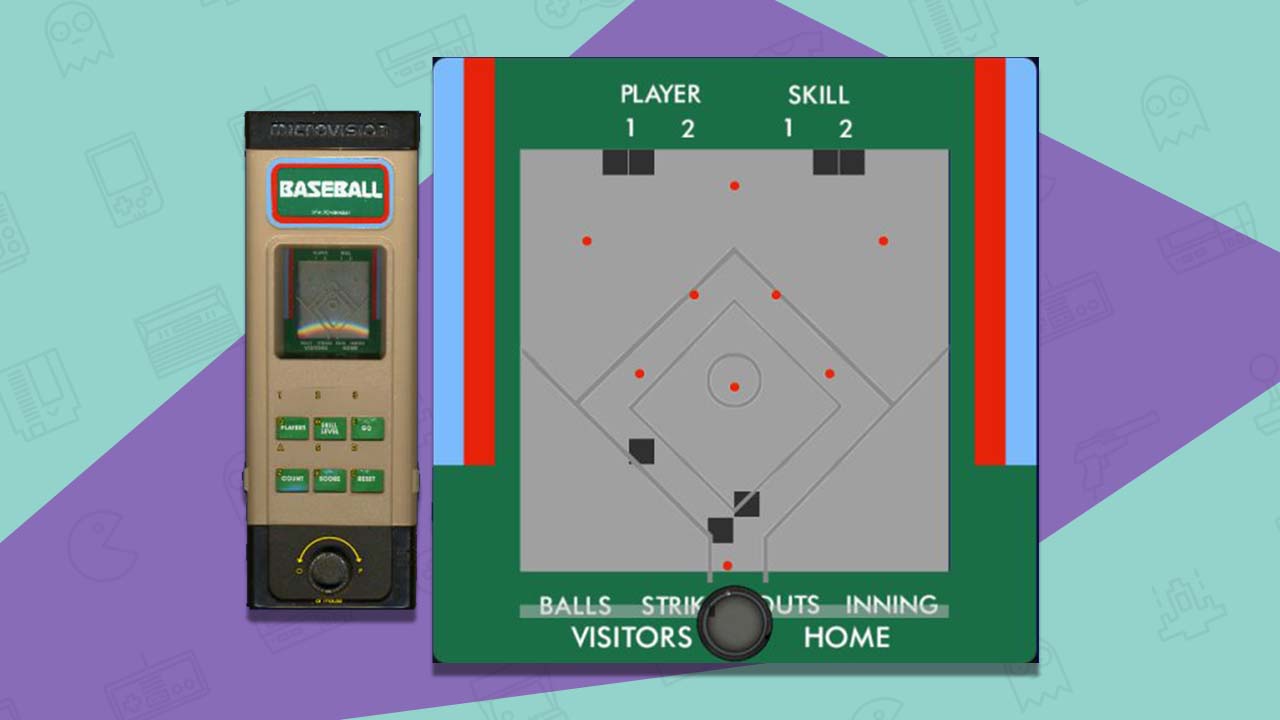
Like Bowling and Vegas Slots, Baseball does what it sets out to do pretty well, with excellent use of the paddle to swing the bat and hit the ball during play – a design element that bumps it up the Best Microvision Games list a bit.
However, Baseball ends up being far too basic and repetitive to be much fun, again just like those two aforementioned titles.
6. Cosmic Hunter
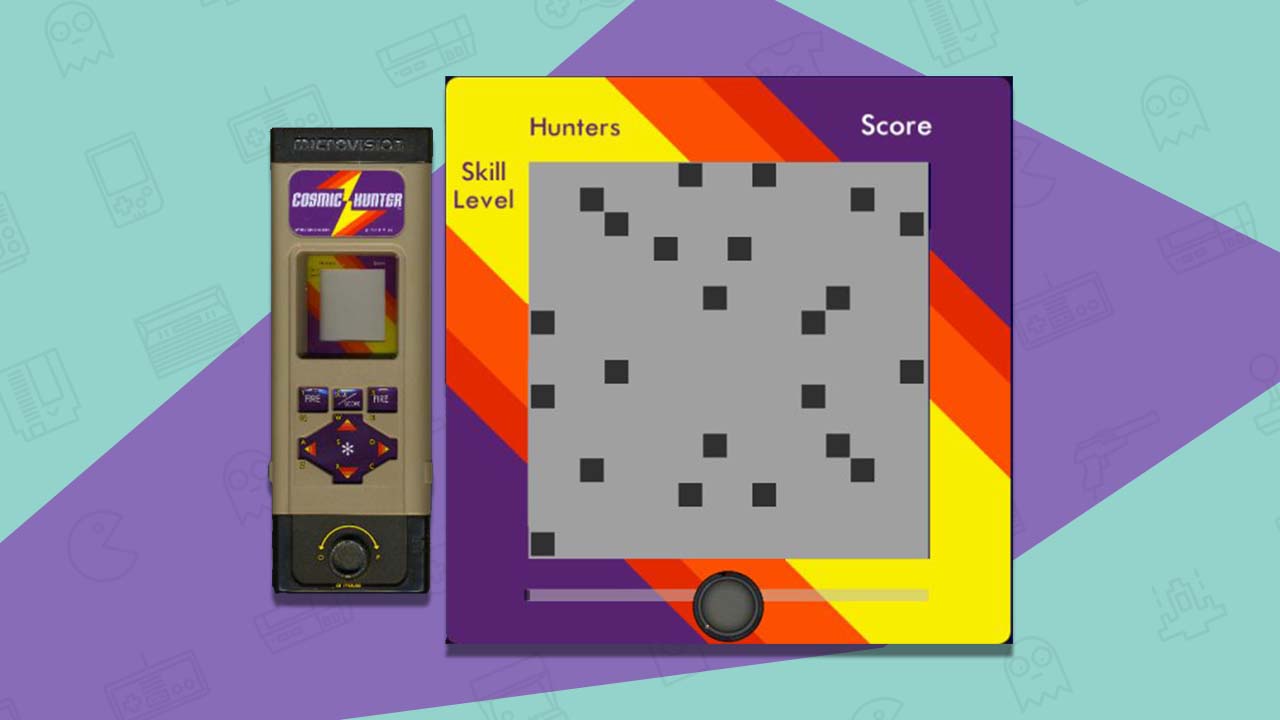
Definitely one of the best looking cartridges in terms of its colourful logo and buttons, Cosmic Hunter just falls a little short in the gameplay department, feeling a bit more abstract than it should. Your little square is chasing another square (of course), but can only succeed in catching it when it’s exactly 2 squares away.
Get any closer and the enemy turns the tables, catching you instead! Cosmic Hunter is an original spin on maze games, but could have done with a bit more pizazz and extra features in the game itself, beyond the fancy cartridge design.
5. Connect Four
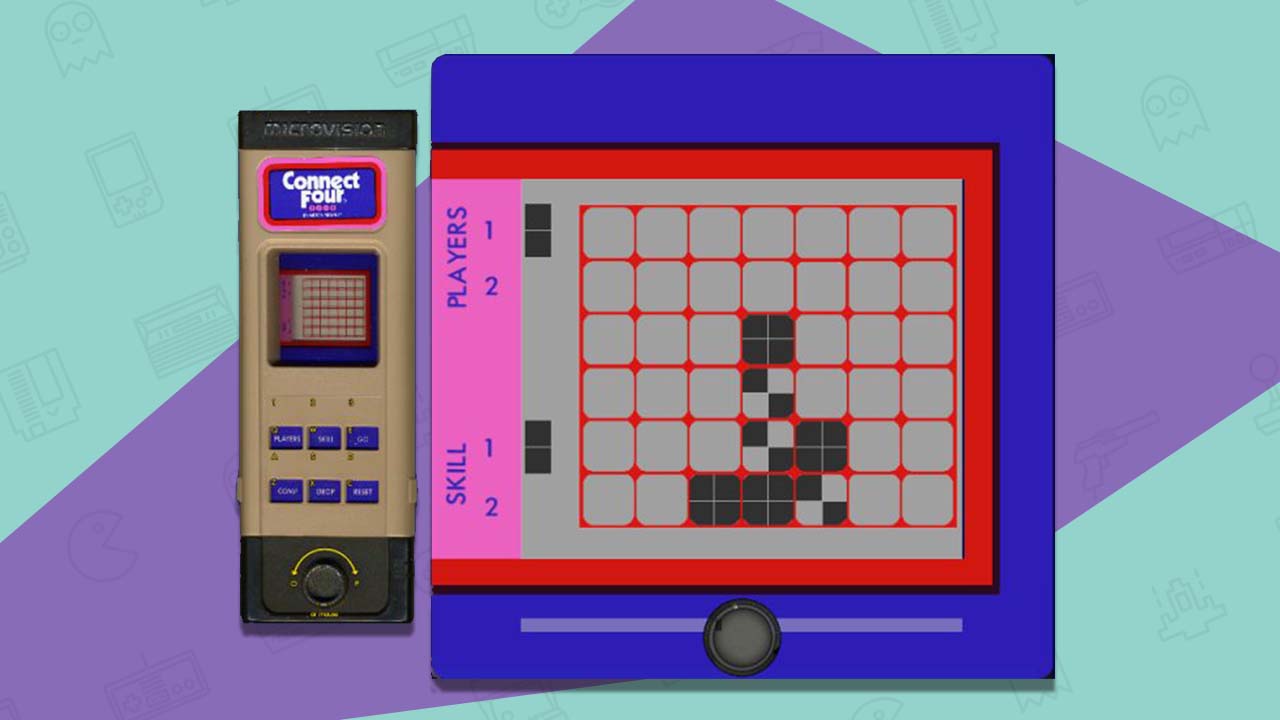
This is a game that needs no explanation – everyone knows tabletop game Connect Four, right?
The Microvision game is an excellent implementation of the physical game, though it stops short of brilliance by it being a little difficult to tell the pieces apart on the tiny, monochrome LCD screen once it starts getting filled up with pieces.
4. Alien Raiders
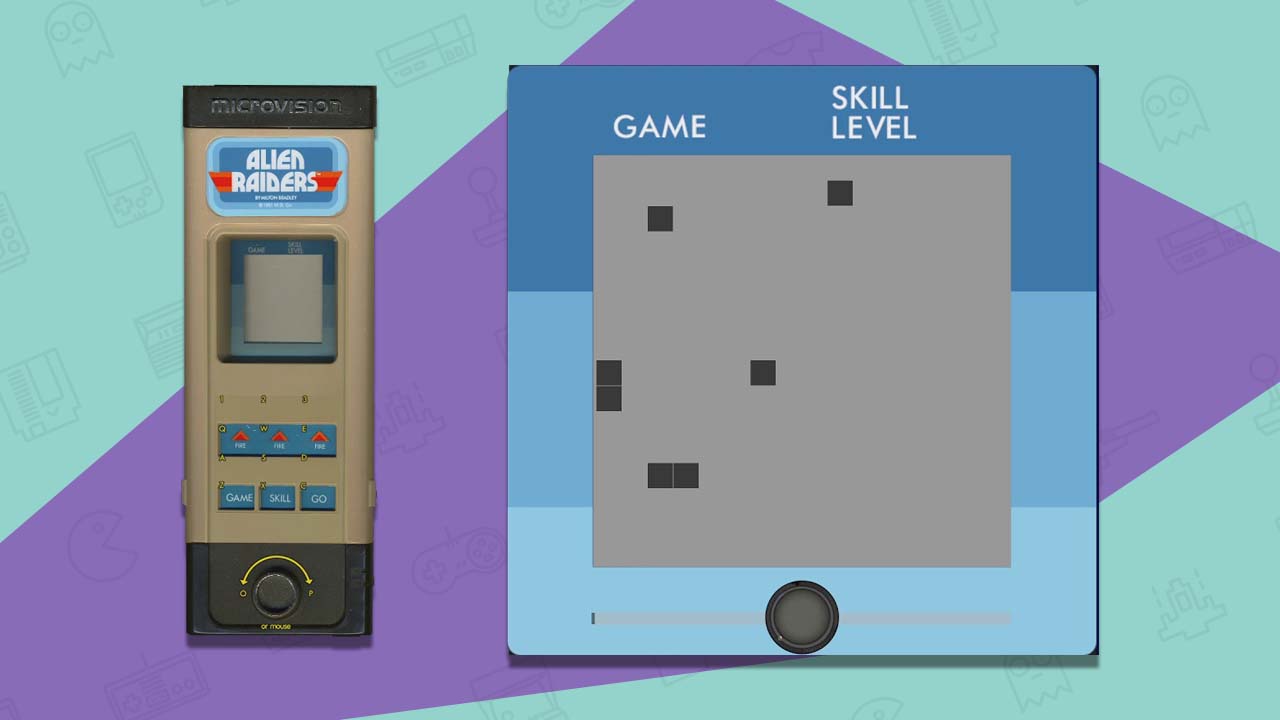
Taking advantage of the Microvision’s paddle style controller to deliver a unique spin on an arcade-style sci-fi shooter, players control a ship on the left hand of the screen, facing off against aliens who approach from the right.
Cleverly, the player’s weapon is a laser beam – the length of which is adjusted by moving the paddle.
If you miss any of the titular Aliens and they land on your side of the screen, it’s Game Over, man!
3. Sea Duel
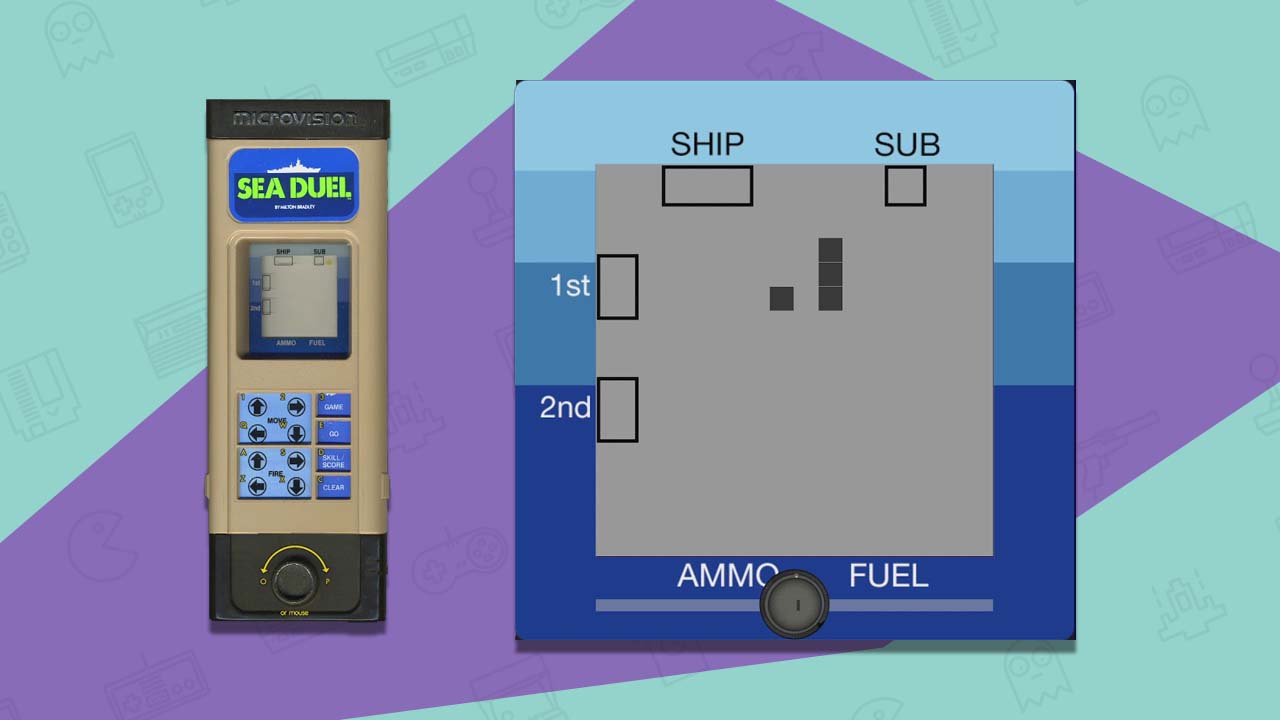
Another example of very clever, unique game design that’s perfectly suited to the tiny, low resolution screen of the Microvision, Sea Duel sees players – either against the CPU or another human player – taking turns to move and line up shots with their naval vessels, before both then fire simultaneously, hoping to have guessed their opponents position correctly to score a hit.
It’s a surprisingly strategic affair and Sea Duel definitely deserved a bigger audience than it got – and it’s a close race in terms of where Sea Duel sits in the Best Microvision Games list, with all of the top three being absolutely superb games.
2. Block Buster
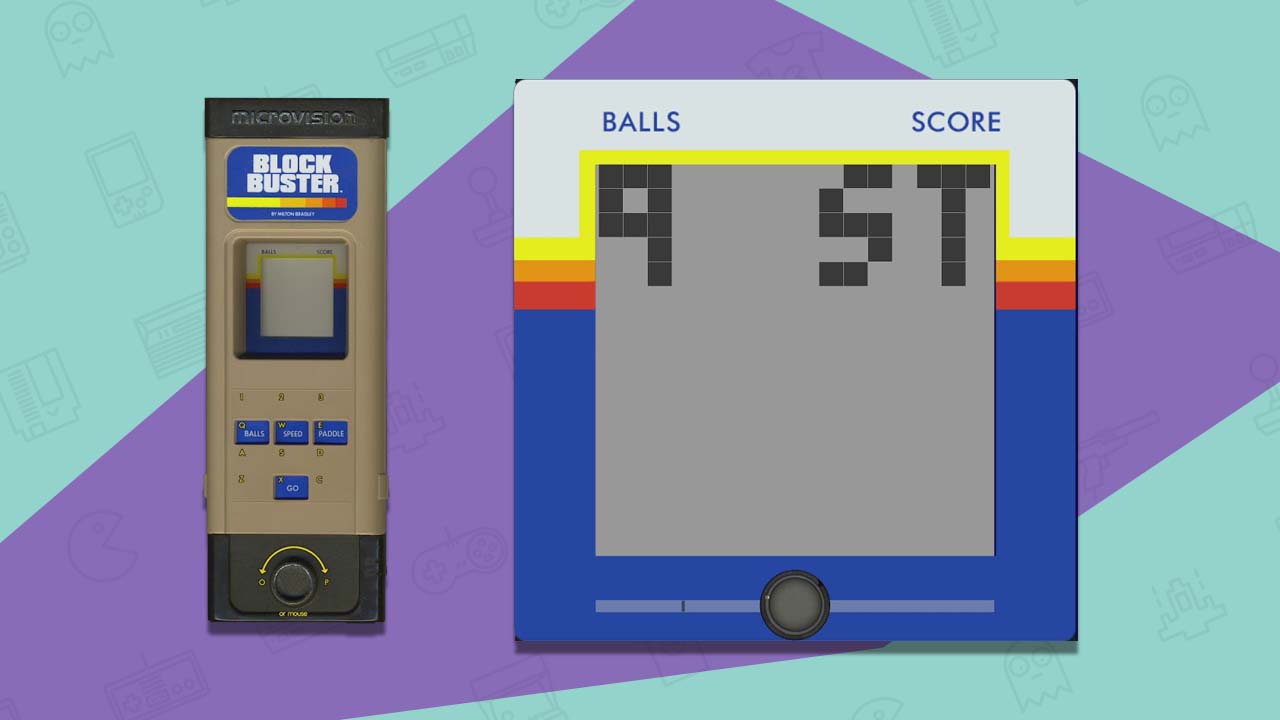
Akin to having the super addictive and timeless Tetris bundled with Game Boys, having Block Buster as the title included with each console was a genius move.
Though super challenging – as so many games were back in the early days – it’s addictive and immediately accessible.
Block Buster was very nearly the epitome of Microvision games and very nearly makes it to the top of the Best Microvision Games list, despite being the one that most players would have owned first. No doubt the fact that almost no other game – except its sequel – came close to the quality of the bundled Block Buster didn’t help the software library grow either.
1. Super Block Buster
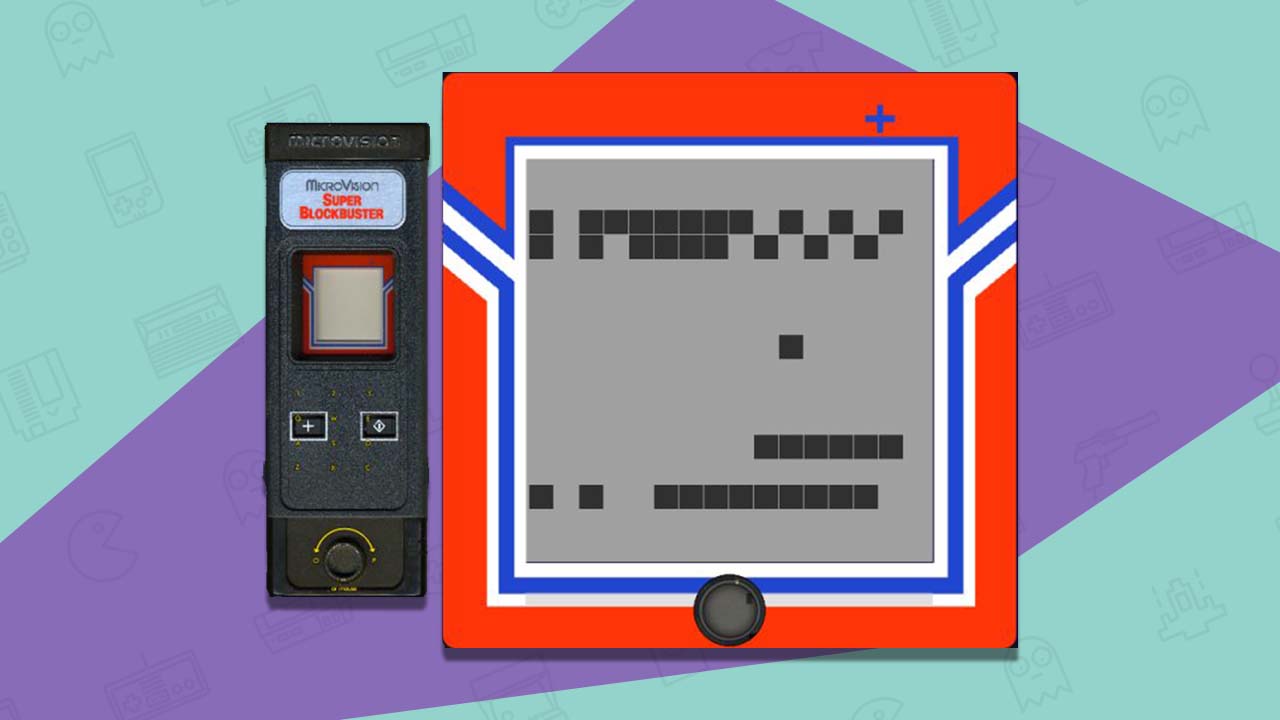
This Europe-only release skipped the States entirely, which is a shame. In our opinion, Super Block Buster is near enough the perfect Microvision game, despite its similarity to Block Buster, the game that was bundled with the console.
The main addition to the gameplay here is the second wall, below the player’s paddle – with no lives and no way of losing the ball, failure occurs when this lower wall of blocks is destroyed.
It’s a fast, frantic and fun Breakout-style game that was sadly the final release for the promising, way-ahead-of-its-time console. And now that we’ve reached the very top of the Best Microvision Games list, why not check out our history of the console below?

